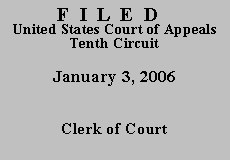 UNITED STATES COURT OF APPEALS
UNITED STATES COURT OF APPEALS
 UNITED STATES COURT OF APPEALS
UNITED STATES COURT OF APPEALS
In 1989, Beeman entered a plea in state court pursuant to North Carolina v. Alford, 400 U.S. 25 (1970), to one count of attempted first degree sexual assault. During the plea colloquy, the court advised Beeman that his plea constituted a felony conviction, that the conviction could be used to charge him as a habitual criminal if he committed another crime, and if convicted of another crime, the conviction of attempted first degree sexual assault could be used to enhance his sentence. Beeman acknowledged his understanding of the court's advisement. The court sentenced Beeman to four years' imprisonment, with credit for time served. Because Beeman had already served more than four years in prison, the court ordered his immediate release.
In 2000, Beeman was convicted of a new felony and was convicted of habitual criminal charges, which included the conviction stemming from his Alford plea. The state trial court sentenced Beeman to twelve years' incarceration.
Two years later, Beeman filed an application for post-conviction relief in state court, arguing that his trial counsel in 1989 rendered ineffective assistance of counsel by incorrectly informing Beeman that his Alford plea could not serve as the basis of future habitual criminal charges. The trial court denied relief because the application was untimely. Under Colorado law, a three year statute of limitations applies to applications for post-conviction relief for felonies other than Class 1 felonies. Colo. Rev. Stat. § 16-5-402(1). Thus, the trial court found that Beeman should have filed the application within three years of the 1989 conviction.
The Colorado Court of Appeals affirmed, finding that the date the sentence was imposed in 1989 commenced the limitations period and that Beeman failed to allege facts that, if true, would establish justifiable excuse or neglect. Specifically, the court rejected Beeman's argument that his 2000 conviction was the first notice he received that his Alford plea could form the basis of a habitual criminal charge. The court determined that the 1989 plea colloquy afforded Beeman adequate notice. In the alternative, the court ruled that Beeman's allegation of ineffective assistance of counsel lacked merit, relying on longstanding Colorado precedent holding that where "the trial court explained and the defendant understood . . . the possible sentences to which he was subject as a result of pleading guilty to the offenses, the assistance of his trial counsel [is], ipso facto, sufficient to meet the constitutional standard, irrespective of whether counsel independently explained these rights to defendant." People v. Hall, 697 P.2d 746, 748 (Colo. Ct. App. 1984).
Having exhausted his state court remedies, Beeman filed a § 2254 petition in the court below. The district court rejected Beeman's claim that his counsel rendered ineffective assistance in connection with the 1989 Alford plea, finding that Beeman cannot attack an expired conviction, notwithstanding its use as a present sentence enhancement. Lackawanna County Dist. Atty. v. Coss, 532 U.S. 394, 403-04 (2001) ("once a state conviction is no longer open to direct or collateral attack in its own right . . . the conviction may be regarded as conclusively valid. If that conviction is later used to enhance a criminal sentence, the defendant generally may not challenge the enhanced sentence through a petition under § 2254 on the ground that the prior conviction was unconstitutionally obtained."). Additionally, the court rejected Beeman's challenge to the state's denial of a post-conviction evidentiary hearing, finding that a claim of constitutional error directed at state post-conviction proceedings is not cognizable on federal habeas review. Sellers v. Ward, 135 F.3d 1333, 1339 (10th Cir. 1998) (claim that "focuses only on the State's post-conviction remedy
. . . states no cognizable federal habeas claim"). Accordingly, the court denied Beeman's § 2254 petition and dismissed the action. Having been denied a COA below, Beeman now seeks a COA from this court.(1)
Upon thorough review of the record, the briefs, and the relevant authority, we discern no error in the district court's disposition of Beeman's § 2254 petition. Neither Beeman's attack on his expired 1989 conviction nor his challenge to state post-conviction procedures are cognizable under § 2254. Moreover, we will not address Beeman's assertion of actual innocence as he failed to raise the issue below. See, e.g., In re Walker, 959 F.2d 894, 896 (10th Cir. 1992) ("a federal appellate court does not consider an issue not passed upon below."); Barnes v. Scott, 201 F.3d 1292, 1294 n.2 (10th Cir. 2000) (applying Walker in § 2254 case). Beeman's motion to appoint counsel and motion to supplement the record are DENIED. We GRANT Beeman's motion to proceed in forma pauperis. Beeman's application for a COA is DENIED and the appeal is DISMISSED.
ENTERED FOR THE COURT
Carlos F. Lucero
Circuit Judge
1. Beeman's petition was filed after April 24, 1996, the effective date of the Antiterrorism and Effective Death Penalty Act ("AEDPA"); as a result, AEDPA's provisions apply to this case. See Rogers v. Gibson, 173 F.3d 1278, 1282 n.1 (10th Cir. 1999) (citing Lindh v. Murphy, 521 U.S. 320 (1997)). AEDPA conditions a petitioner's right to appeal a denial of habeas relief under § 2254 upon a grant of a COA. 28 U.S.C. § 2253(c)(1)(A). A COA may be issued "only if the applicant has made a substantial showing of the denial of a constitutional right." § 2253(c)(2). This requires Beeman to show "that reasonable jurists could debate whether (or, for that matter, agree that) the petition should have been resolved in a different manner or that the issues presented were adequate to deserve encouragement to proceed further." Slack v. McDaniel, 529 U.S. 473, 484 (2000) (quotations omitted). Because the district court denied Beeman a COA, he may not appeal the district court's decision absent a grant of COA by this court.